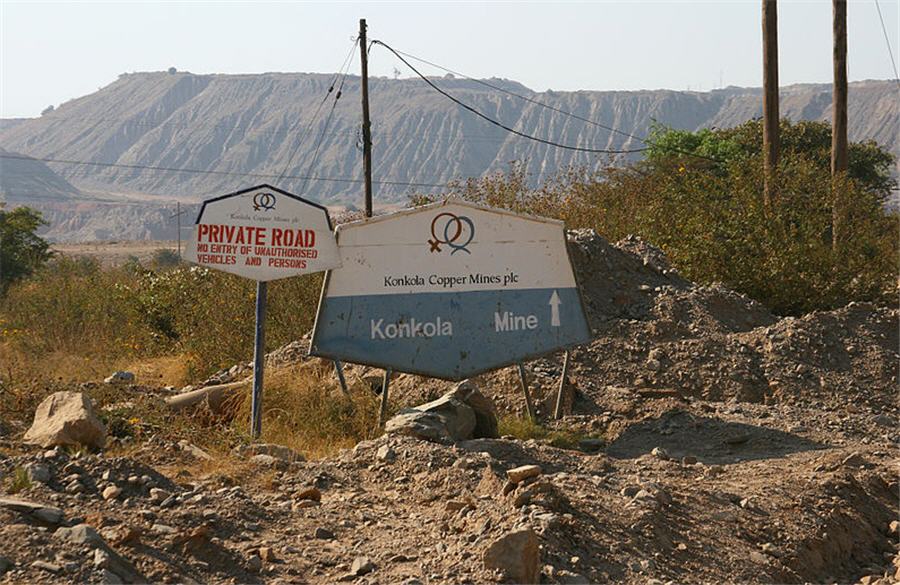
Zambia’s government expects to conclude talks with potential buyers of Vedanta Resources Ltd.’s local copper unit within a month, President Edgar Lungu told Bloomberg.
His comments preempted a hearing by Zambia’s High Court on Thursday on the state’s bid to liquidate the asset after a dispute between the government and the Indian company. The stand-off has rattled investors, with yields on the Eurobonds of Africa’s second-biggest copper producer surging to new records last month.
The government received expressions of interest for Konkola Copper Mines from companies based in Turkey, Russia, India, Canada and China
The government received expressions of interest for the unit, Konkola Copper Mines, from companies based in Turkey, Russia, India, Canada and China, Lungu said in an interview Wednesday. He didn’t identify the firms.
“The team which we have put up is interrogating all these companies to see whether they can fit, meet our expectations,” Lungu, 62, said on the sidelines of a conference in Maputo, Mozambique’s capital. “I think it’s going on very well. By the end of this month, towards the midway next month, we should wrap up in terms of talking to the would-be investors.”
Lungu’s comments are “deeply worrying,” Vedanta said in an statement.
“They imply that a decision to sell the assets was taken in advance of any court ruling and without Vedanta being given the opportunity to be heard,” it said. “KCM is not for sale and Vedanta will challenge any attempt to sell the business without its consent.”
The company is also considering whether to appeal a decision earlier on Thursday by High Court Judge Annesi Banda-Bobo to reject Vedanta’s request to be joined to the liquidation proceedings, it said.
Zambia’s government moved to liquidate Konkola after Lungu accused the company of cheating on its taxes and lying about its expansion plans. Vedanta, majority owned by Indian billionaire Anil Agarwal, says it’s a loyal investor that has spent $3 billion on the operations. The liquidation doesn’t amount to nationalization, and the government stepped in because the company had failed, said Lungu.
The government is eager for a private investor to take over because running the loss-making operations would be a drain on an already strained state budget
Vedanta reported a $165 million operating loss at Konkola in the year through March. Still, the company valued the assets at about $1.6 billion in its most recent annual report. The government is eager for a private investor to take over because running the loss-making operations would be a drain on an already strained state budget.
“We can’t afford keeping that thing because it’s very expensive and obviously we don’t want government to get strapped in there and get stuck,” said Lungu. “We want to do this expeditiously and within the law.”
Zambia is the world’s No. 7 producer of copper, which is used in pipes for buildings and wiring for electric grids. Output disruptions could push the global market for the metal further into deficit this year, amid a strike at Codelco, the world’s bigger miner of the metal.
Mines Minister Richard Musukwa has sought to head off investor concerns that the government’s dispute with Vedanta threatens other foreign-owned businesses, describing the dispute as “an isolated case.”
Lungu also said the government would consider revisiting mining taxes opposed by producers if they proved the levels are too onerous. Konkola, along with units of Glencore Plc and First Quantum Minerals Ltd., is among copper miners that have been affected by higher mining royalties introduced this year, in addition to other tax increases.
The country’s mining-lobby group has warned the government the tax hikes could result in Zambia’s copper output falling by as much as 100,000 metric tons this year from a record 861,946 tons in 2018.
“They always grumble, but I think if they make their case we will hear them,” Lungu said. “But for now, they’ve not made any case to warrant us reversing our position on the tax regime. We are not convinced.”
The government is a minority shareholder in most of the country’s mines and wouldn’t want to smother them with taxes, Lungu said. Some companies have threatened to shutter shafts and fire hundreds of workers because of the tax increases. At least one — First Quantum — backed down. Still, only two of the country’s five copper smelters are currently operating, though not all the owners have cited the new taxes as the reason for shutdowns.
“Every time we’ve tried to raise our share of tax they’ve always come up with their prophesy of doom, all the time,” said Lungu. “They will put up a fight, but we want to get our fair share of tax without killing the industry.”
(By Matthew Hill)
Comments